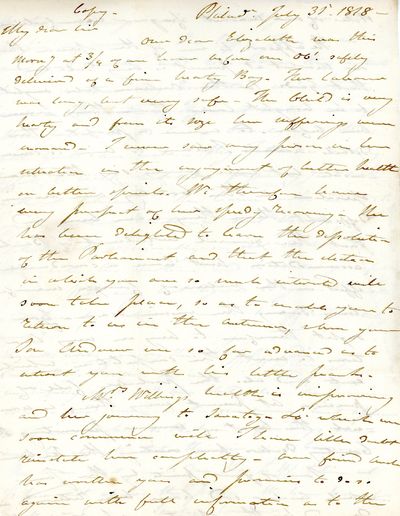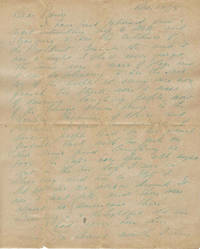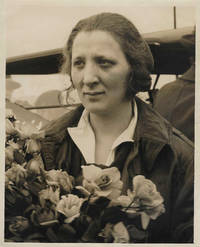by Willing, Thomas Mayne
quarto, 3 pages, plus stamp less address leaf, formerly folded, postal markings on integral address leaf, in very good, clean and legible condition, marked "copy" at top edge of first page.
1818 British ties of a Philadelphia banker, reputedly the richest man in America.
"Our dear Elizabeth was this morning …safely delivered of a fine hearty boy…We…have every prospect of her speedy recovery. We have been delighted to learn the dissolution of the Parliament and that the election in which you are so much interested will soon take place, so as to enable you to return to us in the Autumn, when your son Andrew was so far advanced as to interest you (truncated)
1818 British ties of a Philadelphia banker, reputedly the richest man in America.
"Our dear Elizabeth was this morning …safely delivered of a fine hearty boy…We…have every prospect of her speedy recovery. We have been delighted to learn the dissolution of the Parliament and that the election in which you are so much interested will soon take place, so as to enable you to return to us in the Autumn, when your son Andrew was so far advanced as to interest you (truncated)


